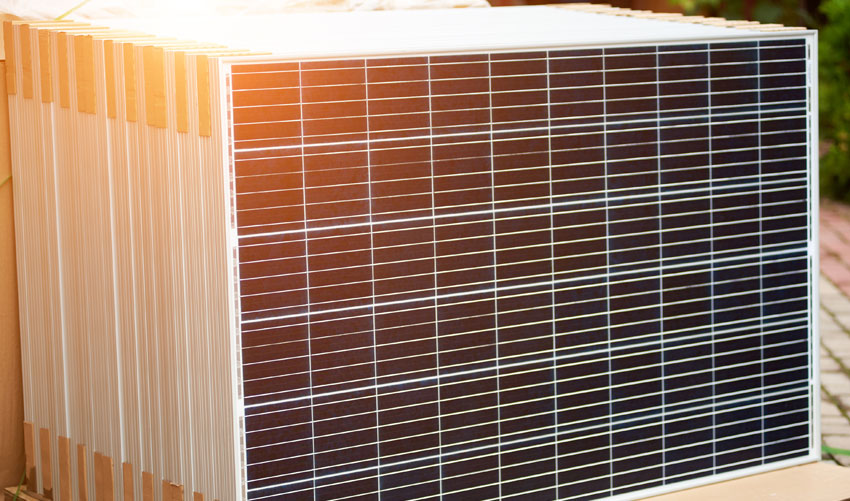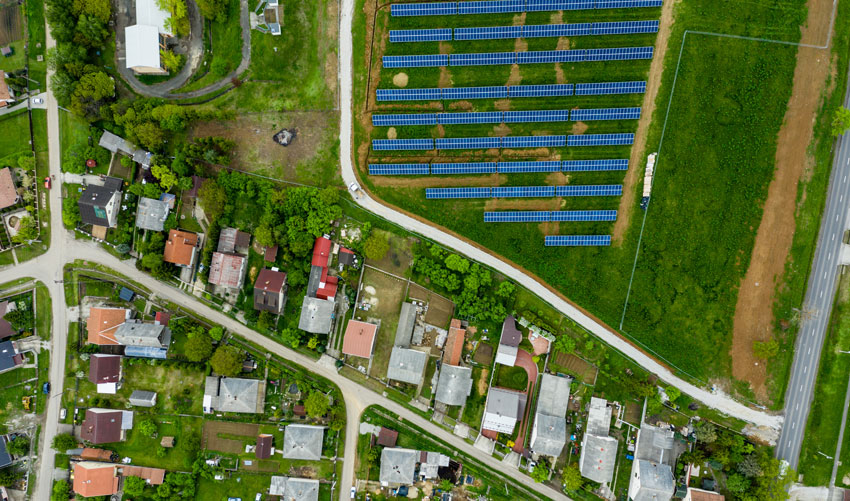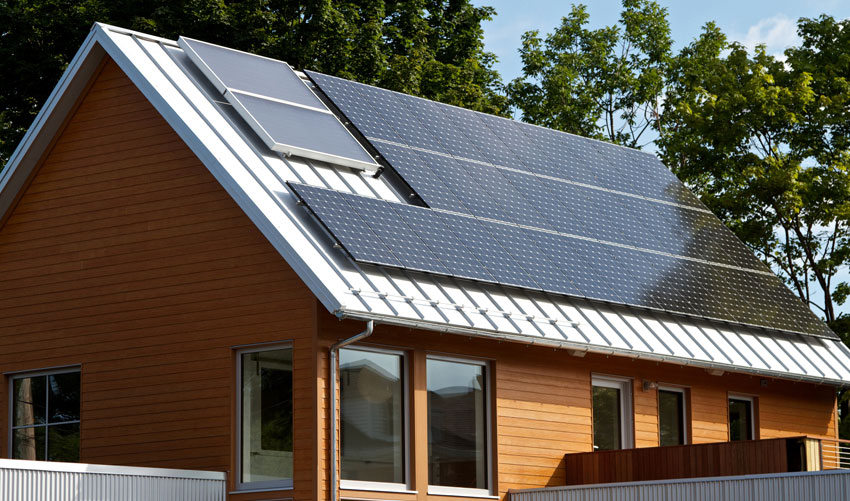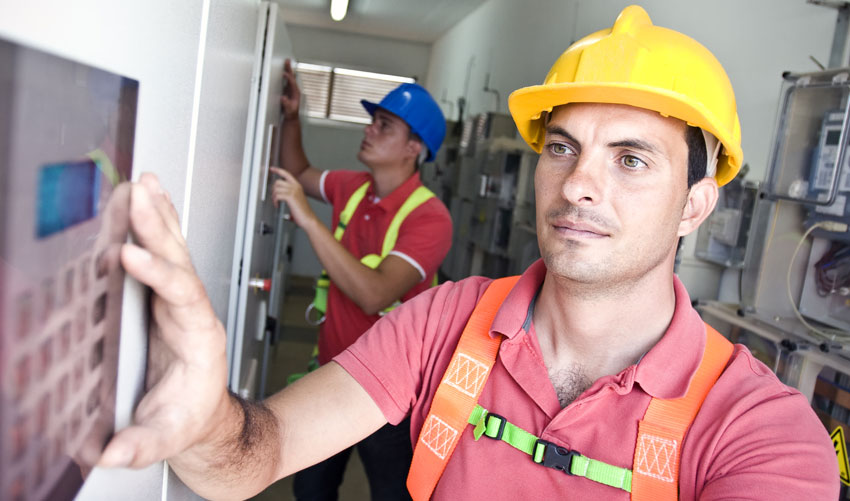There are many different ways to acquire solar power. Two of the most common ways are a solar lease and a solar power purchase agreement (PPA). These are two interesting options, as they are long-term commitments but should end up saving you money in the long run, due to the nature of what you are buying with them; solar panels.
Both of these options work for different people in different situations but to know which option will work best for you, you need to know both the good and the not so good aspects of each option. So, this mini-guide will explain what a solar lease and a solar power purchase agreement are, as well as the pros and cons associated with both options.
A solar lease is much like the renting of a house or the lease of a car. You rent or lease solar power from a company that owns the panels. The company that owns the panels will pay for the installation of the panels and you pay them a rental fee; in addition to your regular solar energy bill cost.
The idea of a lease in general has both supporters and nay-sayers, but with solar there are a lot of things to consider, both positive and negative, before entering into a solar lease.
Pros of a Solar Lease
A solar lease is an option that many people take because that is the only way they can afford solar. Here are the specific pros of having a solar lease:
Little to No Upfront Cost: Since you do not own the solar panels you are not responsible for the large upfront cost that is associated with the installation of solar panels. While you are responsible for your monthly fee, as per your solar lease agreement, the company you are making the agreement with takes care of everything having to do with the installation of the solar panel system.
No Maintenance Responsibilities: When you embark on a solar lease, there are no maintenance responsibilities. That means that you don’t have to worry about snow or debris removal. Plus, when the panels get dirty, you are not responsible for cleaning them or paying to have them cleaned. Therefore, this is a hassle-free option for people who want solar power but don’t want to have to deal with the system.
There Could be a Possible Option to Buy the Panels: Once your lease is over, there could be an option to buy the panels from the company at a discounted rate. There is usually a warranty of 25-30 years but solar panels can actually last quite a bit longer. So, if you decide you want to buy the panels, you will have plenty of time to save, and still have an investment at the end of the agreement.
Cons of a Solar Lease
The biggest issue with leasing solar is that you do not own it and even if you decide to buy the panels at the end of the lease, you are not buying new panels. You are buying the panels that you have used for years, and that isn’t always a good thing.
Here are some of the main cons that are associated with solar leases:
No Rebates for You: The main issue when it comes to solar leases is that the company gets all the rebates that the state and government offer because they are the ones buying the solar system. That is fair, in a way, but for most people it is a little bit odd that the customer doesn’t get anything in terms of rebates, because your house is the one that is being used for the installation. You might be getting solar power but it isn’t for free and the company is using your house, which means that your home is going through all the wear and tear, while they make a profit.
Electric Prices Cannot Be Guaranteed: While most forms of power sources cannot guarantee a certain electric bill price every month, there is some fluidity to it. The same is true with solar energy, as you do not own the solar panels, you have no right to any more information than the company is willing to give to you.
Power Purchase Agreement (PPA)
Power Purchase Agreements, PPAs, are interesting because they are heavily intertwined with solar leases. However, they are not exactly the same thing. PPAs are third-party financiers that help people obtain solar leases. PPA companies can be a third party lender or they can be a lease-lender and an installer. It all depends on the specific company.
Nevertheless, here are the specific pros and cons of PPAs throughout the country:
Pros of a Power Purchase Agreement
Many of the pros of PPAs are the same as solar loans since you usually don’t have a PPA without a solar loan. However, there are a few other pros to this agreement:
Pay for What You Get: While there is no real guarantee of a steady bill with solar panels, power bills are a little more predictable. The reason is that you only pay for what you use. So, if your power is not working for some reason, you are not required to pay for the power you did not receive.
Less Risk: While you are entering into a long contract, the company offering the PPA takes on most of the risk, since you are not paying for any of the installation or maintenance. If something isn’t working right, you don’t get charged for power. This alone should give your PPA provider the incentive to take good care of the panels. That way, you both are getting the most use out of them.
Cons of Power Purchase Agreement
PPAs have their place in solar financing, which is why people opt for this type of agreement, especially in states where solar power is heavily encouraged. Unfortunately, there are a couple of cons that go along with PPAs as well:
Long Term Contracts: The usual contract length for a PPA is twenty years. Two decades. That is a very long time to be indebted to a company and not own anything at the end of it. Plus, trying to move with a PPA on your solar panels, while it is possible, is aggravating. While solar panels might help your home value, the PPA itself will not.

Uplift Charge: PPA companies usually implement an uplift charge. This uplift charge is an increase in the amount you pay the PPA company to give you electricity off your roof. While this charge is agreed to when signing the PPA contract and it is usually lower than the annual utility cost increase, it still means you are paying more for your system as time goes on. This will significantly hurt your overall savings.
Ultimately, it is up to you and dependent on your situation, whether a straight solar lease or a power purchase agreement is right for you and your lifestyle. The specific state you live in, your current financial situation, and the availability of these options can fluctuate. So, now that you know the good and the not so good about solar leases and PPAs on a universal scale, it is important to figure out what each option means specifically for your situation.




